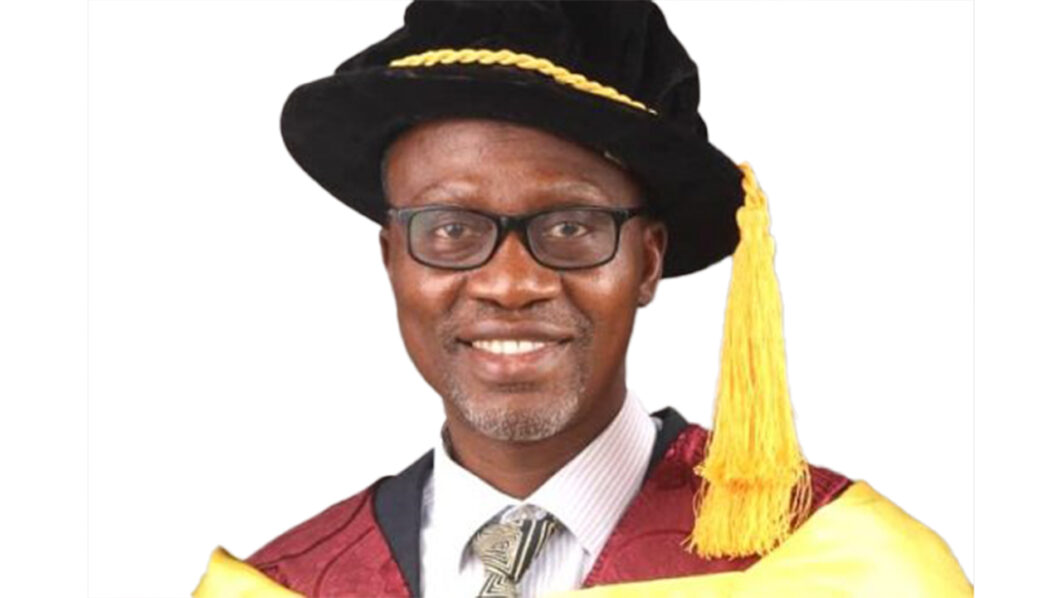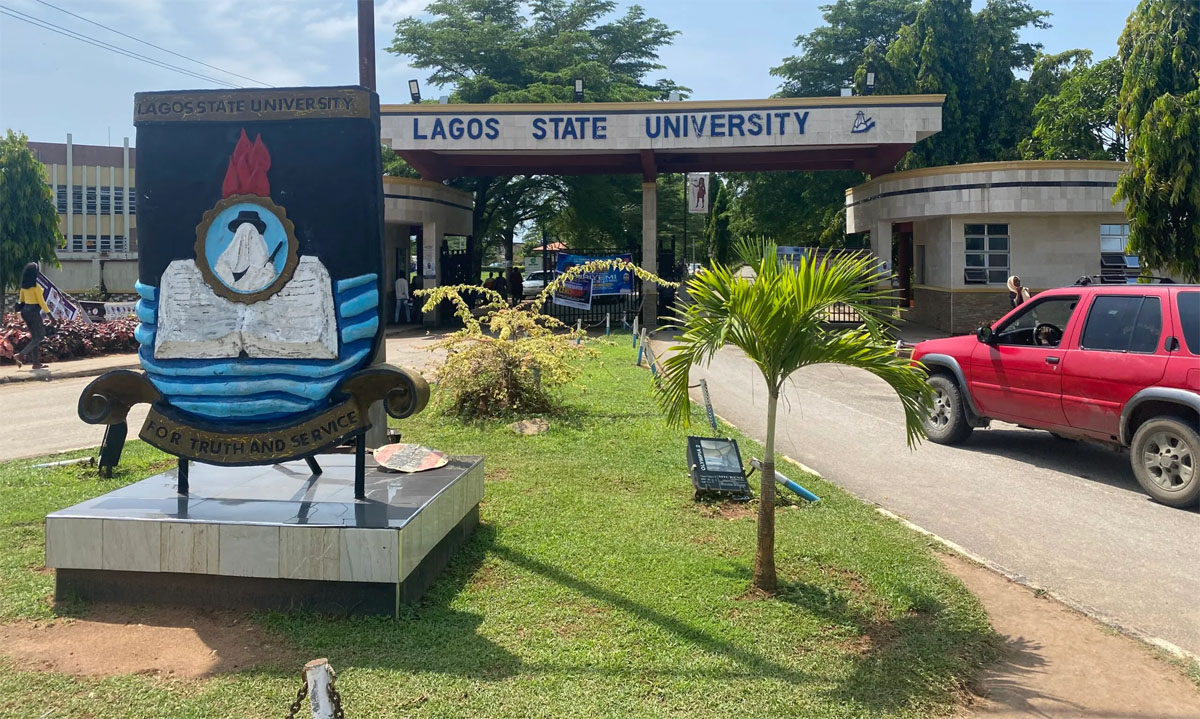Education
Nigeria’s Inioluwa Raji makes Time magazine’s 100 most influential people in AI

Nigeria’s Inioluwa Raji makes Time magazine’s 100 most influential people in AI
A young Nigerian lady, Inioluwa Raji, is making waves globally in the Artificial Intelligence (AI) arm of technology
and this has attracted the attention of highly rated Time magazine.
Indeed, the magazine just named Raji as one of the 100 most influential people in the AI.
The magazine disclosed this on Thursday, adding that the group represents the power centres driving the development in the AI.
Artificial intelligence is the ability of a computer or a robot controlled by a computer to do tasks that are usually done by humans because they require human intelligence and discernment.
Raji is a fellow with the Mozilla Foundation (a global nonprofit focused on internet protection). She was listed among the ‘thinkers’ category for inquisitiveness and passion for helping AI companies.
According to the report, the 27-year-old Raji was an intern at the machine-learning company, Clarifai, where she had an “alarming realisation”.
While helping the startup train a content-moderation model intended to filter out explicit images, she noticed that the model was disproportionately flagging content containing people of colour that was not explicit.
The AI enthusiast had raised the issue as the programme was “filtering the world to be whiter than it actually is”.
Time Magazine said Raji’s discovery also prompted a shift in her focus away from the startup world and towards AI research, where she began to focus on how AI companies could ensure that their models do not cause undue harm.
Since her discovery, Raji has worked with Google’s Ethical AI team to introduce a more holistic internal assessment process for artificial intelligence systems.
She has also collaborated with the Algorithmic Justice League to create strategies for “external auditing” on its ‘Gender Shades’ audit project, Microsoft, and Face++.
She intends to better understand and challenge products before they are implemented at broader scales.
“As a default, a lot of the models that we developed had (data) where a pornographic image that was supposed to represent the (explicit) content was more diverse than the stock images that were supposed to represent safe content,” she said in an interview with Time.
“If I would say we need more diverse data, the response I got was, ‘it’s hard enough to get any data, why would we be thinking about making more complex choices?’
“It became clear to me that this is really not something that people in the field are even aware is a problem to the extent that it is.”
Speaking on regulations and long-term effect and measures, Raji said it is up to developers to provide transparent evaluations of their products and the harms it poses.
“A company’s product is evaluated on a benchmark that tells a very nice, clean story. They’re not mandated to protect their users on anything from privacy to communicating honestly about how well the system will work for that user,” she added.
Education
Two ex-VCs, JAMB registrar to attend Prof. Ibraheem UNILAG inaugural lecture Wed

Two ex-VCs, JAMB registrar to attend Prof. Ibraheem UNILAG historic inaugural lecture Wed
- History beckons as Mass Comm alumnus delivers inaugural lecture Wed
History will be made this week Wednesday December 18, 2024 at University of Lagos when an alumnus of the university’s Mass Communication Department, Ismail Adegboyega Ibrahim, professor of journalism and communication studies, will deliver inaugural lecture as a lecturer of the department.
Ibraheem, a 1990 graduate of the university, returned to the institution in 2011 as a lecturer.
It is the first time a former student of the department will be delivering an inaugural lecture 58 years after its establishment.
Ibraheem, director of International Relations, Partnerships and Prospects at the UNILAG, will speak on “Casino Journalism and the End of History.”
The university’s Vice-Chancellor, Professor Folasade Ogunsola, will chair the event, according to a statement from the institution.
Two former vice-chancellors of the university, Professor Rahamon Bello and Professor Oluwatoyin Ogundipe, are expected to grace the lecture along with the Registrar of the Joint Admissions and Matriculation Board (JAMB), Professor Is-haq Oloyede, among others.
The lecture is scheduled for 4pm at the J.F. Ade. Ajayi Auditorium, UNILAG, Akoka.
Members of the University Community and general public are invited to join the lecture physically or virtually via Zoom Meeting ID:862 1255 2361.
Education
Austria offers scholarship grant for int’l postgraduate, research students

Austria offers scholarship grant for int’l postgraduate, research students
The Republic of Austria is offering an opportunity for international postgraduate students, PhD candidates, and postdoctoral researchers through the Ernst Mach Scholarship 2025.
Managed by OeAD-GmbH, Austria’s agency for education, this scholarship aims to support talented individuals in advancing their academic and research careers in Austria.
Details of the scholarship program
According to OeAD, the Ernst Mach Scholarship is open to students and researchers from various academic disciplines. This includes areas such as;
- Natural sciences
- Technical sciences
- Human medicine
- Health Sciences
- Agricultural sciences
- Social sciences
- Humanities, and arts.
The scholarship provides funding for semester or one-year grants, with research grants lasting from one to nine months, making it accessible to a broad range of applicants.
Benefits of the Ernst Mach scholarship
The scholarship offers numerous benefits to successful applicants.
- Recipients will receive a monthly stipend of €1,300 for the duration of their stay in Austria.
- Accommodation assistance is available, with affordable housing options ranging from €330 to €800 per month.
- OeAD will also provide administrative support to help applicants find suitable housing.
READ ALSO:
- Afe Babalola gets court order banning publication, sale of Dele Farotimi’s book
- Over 50 nuisance taxes will be scrapped — FG
- BREAKING: Blackout as National grid collapses again, 12th time in 2024
Grant holders will receive guidance on obtaining health insurance accepted in Austria, with a cost ranging from €55 to €200 per month. The scholarship also waives tuition fees at public universities, further reducing the financial burden on participants.
A travel subsidy of up to €1,200 is available for applicants from eligible developing countries, with travel invoices required for reimbursement. Moreover, recipients will have the opportunity to build valuable connections with top researchers and institutions in Austria, which can significantly enhance their academic and professional networks.
Eligibility criteria for applicants
The Ernst Mach Scholarship is open to early-career academics who are passionate about advancing their research. To be eligible, applicants must be;
- Postgraduate students pursuing a PhD outside Austria or postgraduates and postdoctoral researchers looking to conduct research in Austria.
- Additionally, postdocs employed at universities outside Austria are also eligible to apply.
- Applicants must be 35 years old or younger (born on or after October 1st, 1989) and should not have lived, studied, or worked in Austria for more than six months prior to applying.
- Proficiency in English or German is required to ensure effective communication during the research process.
How to apply for the Ernst Mach Scholarship
To apply for the Ernst Mach Scholarship 2025, interested individuals must visit the official OeAD-GmbH website.
The application deadline is February 1st, 2025. Applicants should ensure that they meet the eligibility requirements and submit all required documents before the deadline.
Austria offers scholarship grant for int’l postgraduate, research students
Education
LASU workers declare indefinite strike over salary

LASU workers declare indefinite strike over salary
The joint action committee of the academic and non-academic staff of Lagos State University (LASU), Ojo, on Monday, declared an indefinite strike.
Their demands from the Lagos state government – their employer – include an increase in salary and addressing salary disparities between LASU and other universities in the state.
It also includes payment of 20 percent salary increase as promised by the governor during his election campaign.
Others include payment of 20 per cent and 35 per cent agreement reached between the federal government and university workers.
The unions involved include the LASU chapters of the Academic Staff Union of Universities (ASUU) and the Senior Staff Association of Nigerian Universities (SSANU).
Also involved are the LASU Chapters of the Non-Academic Staff Union of Educational and Associated Institutions (NASU) and the National Association of Academic Technologists (NAAT).
Justice Obafemi, the chairman, NASU-LASU, said that the genesis of the industrial action was the promised 20 per cent salary increase made by Gov. Babajide Sanwo-Olu of Lagos during his electioneering campaign.
READ ALSO:
- Haiti: Gang kills 110 people accused of witchcraft
- Police rescue 36 kidnap victims in Kebbi
- Youth group insists on Seyi Tinubu as next Lagos governor, says “Pastors hand over to their sons”
Mr Obafemi said that after the election, the governor only paid the civil servants at Alausa Secretariat, neglecting the staff of the tertiary institutions.
“They used us, and in spite of our active contributions and efforts we made during the election, they have not fulfilled their promise.
“There is also a disparity in payment of salaries between LASU and the other two state-owned tertiary institutions.
“Even before Adeniran Ogunsanya College of Education (AOCOED), and Lagos State Polytechnic (LASPOTECH) transmuted to universities, their staff were earning more than LASU staff,” the NASU chairman said.
Mr Obafemi added that when the administration came on board as new leaders, the unions wrote to the state government to look into the disparities.
“Also, the 20 per cent and 35 per cent agreement reached between the federal government and university workers.
“We set up a committee to look into it and sent all our requests to the government to harmonise salaries of all the academic institutions in the state.
“We had several meetings with the Lagos State Ministry of Tertiary Education and Ministry of Establishment and Training.
“Also, the LASU management tried to step into the matter. The vice-chancellor has pleaded several times, but we cannot continue to sacrifice the welfare of our union members,” Mr Obafemi said.
READ ALSO:
- 2027 presidency: Tinubu hasn’t shown reasons to be re-elected – Atiku
- Wike, AGF seek amendment of TETFund Act to include Law School
- New PH refinery over 90% completed —Mele Kyari
Ibrahim Bakare, chairman of ASUU-LASU, said that the unions were more interested in peace, adding that the action was an agitation for staff welfare.
Mr Bakare said that all unions in the institution decided to come together and collaborate to get to where they are today.
“We are being civil and not disrespecting the Senate of the university. We will remain calm for the government to address our demands and call us for a meeting,” he said.
Seyi Lawal, chairman, Senior Staff Association of Nigerian Universities, SSANU-LASU, said that it had discussed and given the government several ultimatums to address and meet its demands.
Mr Lawal said that the government had been playing games with them, so the unions decided to take action by calling for an indefinite strike.
“We have not even gotten to the stage of payment of minimum wage; we want the government to address these demands first,” he said.
Oluwayemisi Thomas-Onashile, coordinator, centre for information and public relations, LASU, said in a statement that the institution’s Senate had declared a Christmas and New Year break for the students and staff.
She said that the break started today till Jan. 5, 2025, adding that all university activities, including lectures and socio-academic events, would resume on Jan. 6, 2025.
“All students residing in the university’s hostels across all campuses (Ojo, LASUCOM, Epe and Badagry) are required to vacate the hostels within 48 hours.
“The university management appreciates the support and dedication of staff and students throughout the year and wishes everyone a joyous Christmas and a prosperous New Year,” Mr Thomas-Onashile said.
LASU workers declare indefinite strike over salary
(NAN)
-

 Railway1 day ago
Railway1 day agoLagos Rail Mass Transit part of FG free train ride – NRC
-

 metro13 hours ago
metro13 hours agoWhy we displayed ‘Jesus Christ is not God’ banner at Lekki mosque -Imam
-

 metro2 days ago
metro2 days agoCourt stops customs from seizing imported rice in open market
-

 metro3 days ago
metro3 days agoIbadan stampede: Tinubu orders probe as death toll hits 40
-

 metro2 days ago
metro2 days agoIbadan stampede: Ooni reacts after arrest of ex-wife
-

 metro2 days ago
metro2 days agoAfe Babalola: Court grants Dele Farotimi bail, barred from media interviews
-

 metro1 day ago
metro1 day agoNIMC warns against extortion, reaffirms free NIN enrollment
-

 News3 days ago
News3 days agoAdebayo Ogunlesi, 2 other Nigerians make Forbes 50 wealthiest Black Americans list 2024













